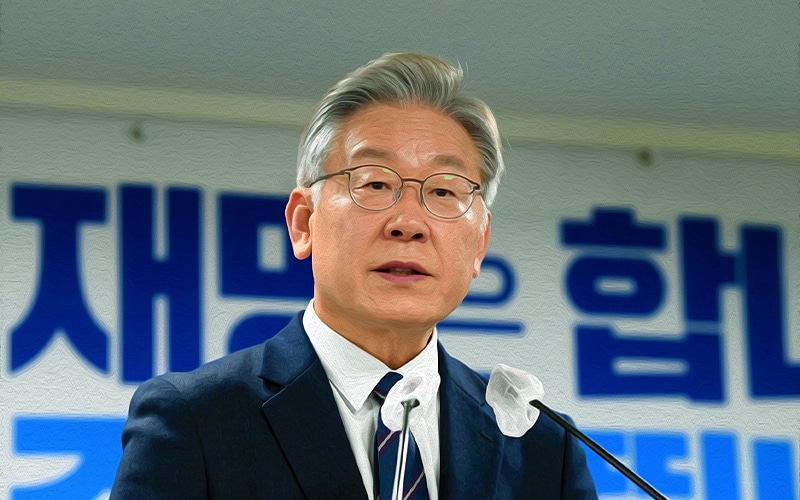In Brief:
- Lee Jae-myung plans to raise political race assets through a blockchain stage and prize NFTs to givers.
- The move is part of the Lee campaign’s larger effort to reach out to young people.
- The world – first move comes in a bid to gain support from tech-savvy young voters, especially those with an interest in cryptocurrencies.
Lee Jae-Myung, the official progressive presidential candidate for the ruling Democratic Party of South Korea, plans to raise political race assets through a blockchain stage and prize NFTs to givers.
Revealing the decision, Lee said: “It is high time that we undertake innovative experiments to enhance our understanding of these future technologies and change perceptions of digital currencies and NFTs.”
The Democratic Party (DP) will give non-fungible tokens (NFTs) that incorporate Lee’s picture and political race vows to the people who send cash to his fundraising crusade for the March 9 presidential election, the board said.
The Democratic Party’s mission advisory group accepts NFTs will fill in as another mode for messages to citizens and carry political memorabilia to an age of computerized locals.
“As the young generation in their 20s and 30s are interested in emerging technologies, including virtual assets, NFTs and the metaverse, this type of fundraising could appeal to them,” Kim Nam-kook, a campaign committee official, told Yonhap News.
The move is part of the Lee campaign’s larger effort to reach out to young people. This campaign has featured presentations in favour of digital assets as well as advocacy for non-financial tokens in the gaming industry. According to the campaign, this ought to be the first time NFTs have been used to fund a national presidential campaign in the world.
The digital currency has been leaking its direction into other South Korean legislators’ eyelines as of late as well. Member of National Assembly Lee Kwang-Jae declared his campaign office will be prepared to receive crypto gifts by mid-January.
The news comes despite earlier warnings that such fundraisers may violate the Political Funds Act or the Public Official Election Act. While crypto-related regulatory concerns have developed in South Korea, elements of the crypto community being engaged in presidential election campaigns is a welcome change of pace.
“If we deny what actually exists, it will be similar to an isolationist foreign policy,” the presidential candidate concluded.
While Lee’s NFT crowdfunding may be the first of its sort, the crypto business has recently been playing an increasingly important role in campaign financing. Melania Trump, the former first lady of the United States, recently launched an NFT platform in the United States.






